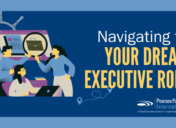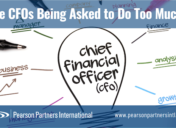Become Your Organization’s Executive Coach
 As a CEO, you’re asked to play many roles in the organization from visionary strategist to crisis manager to financial taskmaster. But are you also serving as an executive coach? Providing guidance and support to your senior leadership team is vital to strengthening your company’s internal talent pool and improving its prospects for long-term success.
As a CEO, you’re asked to play many roles in the organization from visionary strategist to crisis manager to financial taskmaster. But are you also serving as an executive coach? Providing guidance and support to your senior leadership team is vital to strengthening your company’s internal talent pool and improving its prospects for long-term success.
Depending on your leadership style, you may already be doing some informal counseling or making suggestions for improvement. If so, you’re already well on the road to becoming an executive coach. However, a CEO with a more authoritarian approach may need to shift gears—perhaps with the help of an outside consultant—in order to be an effective executive coach.
When you feel ready to take up this role, you should let your senior executives know you plan to become their coach. That lays out the groundwork for the coaching program, and opens the door for executives to reach out to you with their questions if they are unsure about how to handle a certain situation.
Because time is always in short supply, it’s a good idea to block out time for coaching sessions. Otherwise, you’ll find yourself responding to the crisis of the day, rather than your company’s long-term needs.
After the initial team meeting, the next step in the coaching process involves observation. You need to spend time with your senior executives in order to understand their leadership styles and professional strengths and weaknesses. For instance, your chief financial officer might make decisions based on the immediate return on investment, without considering the long-term strategic implications for the company. Or the chief marketing officer might be having a difficult time with holding subordinates accountable for their actions.
Once you have gathered your insight, you should meet with your executives to discuss your observations, gather their feedback and develop a joint strategy for improvement. One-on-one coaching sessions are usually more effective than group meetings, because each executive receives your personal attention and any shortcomings are not broadcast to the team.
Afterwards, you should continue observing the executives to see if there has been a desired change in behaviors, attitudes or decisions. That may lead to another round of coaching sessions, as you continue to develop more effective leaders for your organization.
Pearson Partners can help you at any stage of your executive coaching process, from planning to implementation to follow-up and assessments. Learn more.















